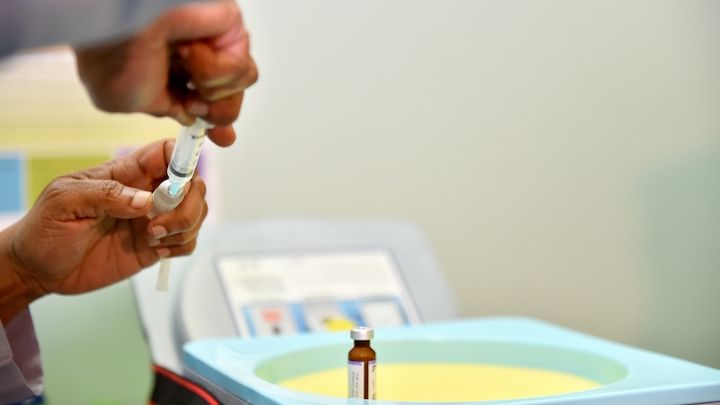Nationwide measles vaccination campaign underway
A mass measles and rubella vaccination campaign is underway across the Maldives with an ambitious goal of vaccinating all Maldivians between the ages of eight and 25 within two weeks.

28 Feb 2017, 09:00
A mass measles and rubella vaccination campaign is underway throughout the Maldives with an ambitious goal of vaccinating about 70,000 people within two weeks.
The nationwide campaign was launched Sunday with the presentation of vaccination cards by President Abdulla Yameen to two staff members at the president’s office who were among the first to be vaccinated.
Briefing the press after the ceremony at the president’s office, Health Minister Abdulla Nazim Ibrahim said the government’s target is for the Maldives to become the first country in the region to achieve the World Health Organisation’s goal of eliminating measles by 2020.
Appealing for public cooperation, Nazim said the government hopes to vaccinate 95 percent of the target population before March 11.
Become a member
Get full access to our archive and personalise your experience.
Already a member?
Discussion
No comments yet. Be the first to share your thoughts!
No comments yet. Be the first to join the conversation!
Join the Conversation
Sign in to share your thoughts under an alias and take part in the discussion. Independent journalism thrives on open, respectful debate — your voice matters.




